Yorkshire Wildlife Trust at Appleton Mill
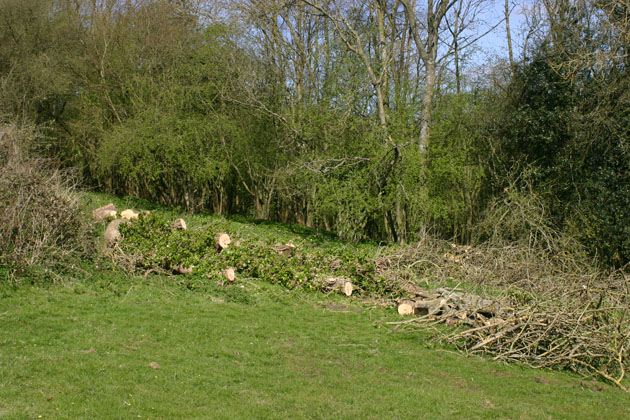
This is the sight that met us when we arrived at Appleton Mill Farm – a felled Ash tree. It had been taken down as it was old, in places rotten, leaning into the road and in danger of falling. I had seen earlier in the month that the Yorkshire Wildlife Trust volunteer group were meeting here for a day of conservation work. Appleton-le-Moors is the village next to me, and Appleton Mill Farm within walking distance, so it was a session I didn’t want to miss.
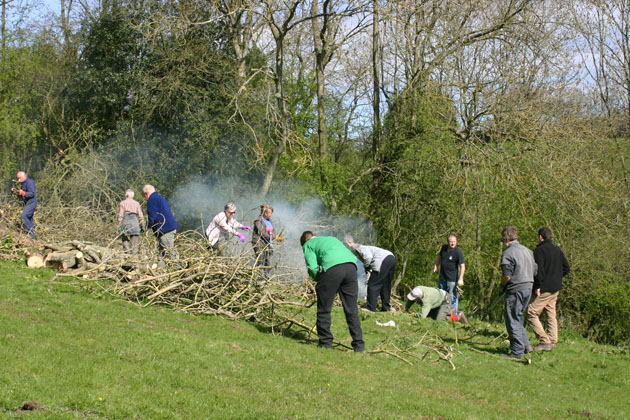
Appleton Mill Farm is managed for wildlife by the Yorkshire Wildlife Trust and they have a base at Appleton Mill at the same site. Our work formed part of their hedgerow restoration plan.
Hedgerow restoration helps Yorkshire Wildlife Trust fulfill commitments made under stewardship schemes administered by Natural England for landscape enhancement and conservation. Restored healthy hedgerows are wonderful as wildlife havens and bird nesting sites as well as being connecting passages for mammals and invertebrates to move around. These areas also host a greater variety of plants, and offer conditions where they can thrive, and in turn the plants may well provide nectar and pollen for butterflies and other insects.
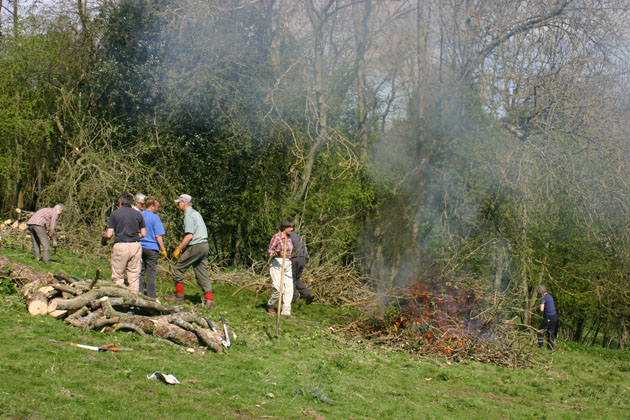
To begin with it seemed rather contra to me, felling and clearing timber that might be useful for beetles and all kinds of insects, and lighting a polluting bonfire, but I was encouraged to see the larger picture and assured that it was making a positive difference. In any event, with so many hands at work the huge pile was very soon cleared.

The group were extremely welcoming and at break time we discussed all sorts of work they had done previously over the most heavenly crumbly cake. And then we were back to work.
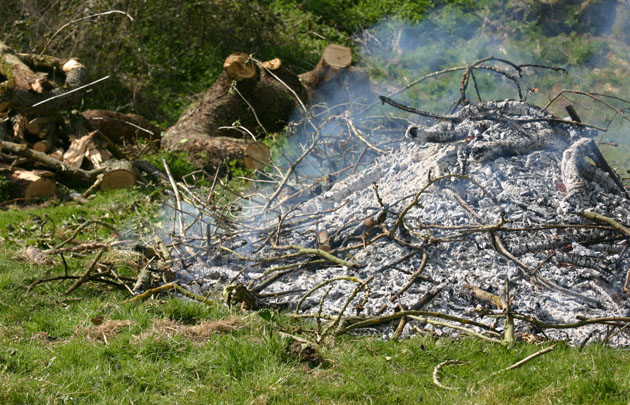
The larger logs were neatly stacked and left for making into firewood. The fields at Appleton Mill Farm are grazed by Beef Shorthorn cattle and planted with wildflowers.
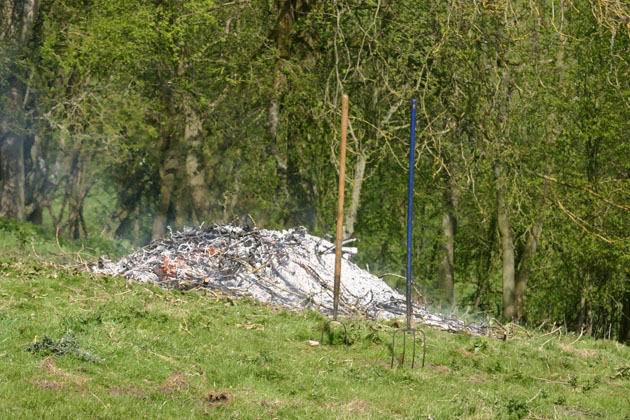
On the walk back I as aware of woodsmoke lingering and fields full of insects.
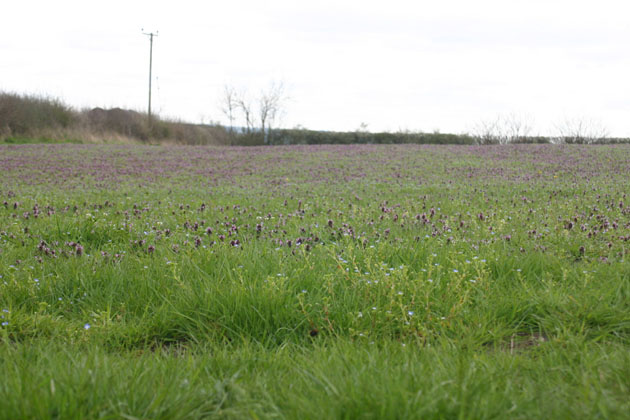
Looking forward to my next session.

8 Comments
It looks a lovely day to spend outdoors working on a worthwhile project. Can you go back later in the year and see what you can find insect wise?
I’m sure I’ll be able to – work parties tend to move around to various sites, depending on what tasks needs to be done most urgently. I’m new to the group and so will get to know more in time – and I can suggest these sorts of things. I’m now keeping a diary and survey notes for my little area at the workshop – which is a start.
A positive day done, nice to see people taking the time to get involved…
Amanda xx
A happy, knowledgeable bunch – I’m trying to organise my time to join them more often
we have a burn pile over at the shop. the old burn pile at the back of our property I’m letting stand as a brush pile.
Generally I try and compost if possible – and also chop for kindling. I left a stump at my workshop and it slowly reduces in size itself, burrowed into by beetles etc and it is home to many little creatures – fascinating to watch!
Goodness that took me back … I used to attend and sometimes lead conservation work weekends with the BTCV. I could probably still lay a hedge if put to it, although not while my back/shoulders are so sore.
When I see a pile of woodash like that I see an alkali for modifying dyes … burning isn’t all bad 🙂
What a wonderful skill to have – I’m in very early stages and learning. You’ve made me feel better about the woodash, and that process is fascinating too